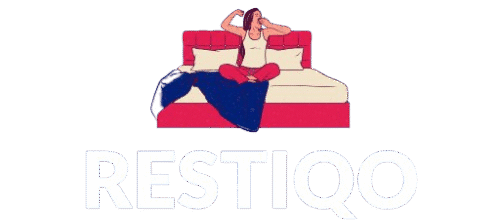
Ever roll out of bed after a “decent” six hours of sleep, only to feel like a groggy zombie trudging through your morning? You’re not alone. Six hours might sound “normal,” especially if you’re a high performer juggling a career, side hustle, and an inbox that never sleeps—but your brain and body disagree.
Here’s a stat to jolt you awake: getting just six hours of sleep per night for two weeks impairs your cognitive performance as much as staying awake for 48 hours straight. Yep, that’s not a typo. According to Fatigue Science, the effects of mild sleep deprivation sneak up on you, dragging down your memory, focus, mood, and decision-making skills.
This article reveals why six hours leaves you wrecked, what’s happening inside your sleep cycles, and how to finally reclaim your energy. Plus—a free downloadable Sleep Audit & Checklist to help you troubleshoot your own habits.
Let’s dive in.
Table of Contents
The Hidden Costs of Short Sleep
We live in a world that glorifies hustle culture and Netflix marathons, but the cumulative cost of cutting your sleep short is bigger than most realize.
Ever heard of sleep debt? It’s the invisible tally your brain keeps when you consistently sleep less than you need. And while you might think, “I’m fine,” your reaction time, mood, and decision-making are quietly declining.
Fatigue Science found that moderate sleep deprivation (like 6 hours a night for 14 days) has a similar cognitive effect as being awake for 48 hours. That means your mental clarity is worse than you realize, even if you can still type emails and survive meetings.
Over time, sleep debt triggers:
- Memory issues
- Mood swings
- Decision fatigue
- Lower stress resilience
And the worst part? You adapt to feeling average and start thinking it’s your baseline.
What Happens Inside Your Brain on Only 6 Hours of Sleep
Your sleep isn’t just one long nap; it’s made up of several stages that your body cycles through multiple times a night.
Depriving Deep Sleep = Broken Recovery Cycle
When you limit yourself to six hours, you often miss out on enough slow-wave sleep (SWS)—the deepest, most restorative stage responsible for physical recovery, immune support, and memory consolidation.
Without it, your body struggles to repair tissue, reset hormone levels, and file away memories properly.
REM Disruptions and Creativity Impairment
REM sleep (where most dreaming happens) plays a key role in emotional regulation, learning, and creative problem-solving. Short sleep chops off the last 1–2 REM cycles, leaving your emotional brain more reactive and your ideas less sharp.
Brain Fog via Adenosine Buildup
Adenosine, a byproduct of energy use, builds up in your brain the longer you stay awake. Deep sleep clears it out. Less sleep means leftover adenosine, causing morning grogginess, moodiness, and brain fog.
Sleep Inertia: Morning Grogginess Explained
Sleep inertia is that disoriented, sluggish feeling you get when waking up from deep sleep or at the wrong point in your sleep cycle.
- Waking during slow-wave sleep? Expect up to 30–60 minutes of cognitive impairment.
- Waking during light sleep? You’ll feel more alert.
Tips to Minimize Sleep Inertia:
- Avoid abrupt alarms—use a gradual light alarm or app.
- Let natural sunlight hit your eyes within 10 minutes of waking.
- Place your alarm across the room to force movement.
Common Reasons You Only Sleep 6 Hours
Most people shortchange their sleep without realizing it. Here’s why:
- Erratic sleep schedules: Skipping your natural circadian rhythm confuses your body clock.
- Late-night caffeine: Stimulants linger in your system for 6–8 hours.
- Blue light exposure: Screens suppress melatonin by 23–50%.
- Stress and cortisol spikes: Work worries, doomscrolling, or evening workouts.
- Noisy, too-warm bedrooms: Sleep needs a cool, quiet, dark environment.
How to Reclaim Restorative Sleep
The good news: it’s fixable. Here’s where to start:
- Stick to a consistent schedule, even on weekends.
- Avoid caffeine after 2 p.m.
- Shut down screens 60 minutes before bed.
- Keep your room cool (around 18–20°C/65–68°F).
- Use blackout curtains and white noise machines.
- Wind down with stretching, journaling, or reading.
- If naps are needed, keep them under 25 minutes.
When 6 Hours Might Not Be Your Limit
About 1% of the population carries a rare gene mutation making them natural short sleepers. But for most people, fewer than 7 hours leads to partial sleep deprivation.
Not sure how much you actually need?
- Track your sleep with a journal or app.
- See how you feel with 7–8 hours for a week.
- Note energy, mood, and focus levels.
DIY Sleep Audit Quiz
Use this quick check-in:
- Do you feel groggy most mornings?
- Need caffeine by 10 a.m.?
- Crash hard in the afternoon?
- Struggle to focus on simple tasks?
- Mood swings or irritability?
If you answered “yes” to 3 or more—you’re running a sleep debt. Time to tweak those habits.
Frequently Asked Questions
Is it normal to feel tired after 6 hours of sleep?
Not really. While some people convince themselves six hours is enough, research consistently shows that adults need 7–9 hours for optimal health, brain function, and mood stability. Six hours often leaves you in sleep debt, which builds up over time.
Can your body adjust to only 6 hours of sleep?
It might feel like you’ve adapted, but your cognitive performance, reaction time, and emotional regulation quietly suffer. Studies show even after two weeks of 6-hour nights, people still perform like they’ve been awake for 48 hours straight.
What is the healthiest amount of sleep per night?
Most adults need 7–9 hours. The sweet spot varies by person, but very few people are natural short sleepers (less than 1% of the population). Consistently getting less than 7 hours increases risks of weight gain, heart disease, mood disorders, and cognitive decline.
How can I tell if I’m getting enough quality sleep?
Signs you’re sleeping well: – You wake up naturally without an alarm. – You feel alert and focused most of the day. – You rarely need naps or excessive caffeine. If that’s not your reality, you’re likely dealing with sleep inertia or sleep debt.
Does catching up on sleep on weekends help?
A little, but it won’t erase chronic sleep debt. Sleeping in on weekends might reduce immediate fatigue but can further disrupt your circadian rhythm, making Monday mornings worse. The fix is a consistent sleep schedule every day.
Conclusion
Six hours of sleep might feel normal, but it shortchanges your brain’s recovery, emotional regulation, and overall performance. The sleep debt adds up fast, bringing grogginess, cognitive decline, and mood swings along for the ride.
Good news: simple, science-backed tweaks can help you reclaim better rest. Prioritize sleep hygiene, consistent schedules, and smarter tech habits—and you’ll finally wake up sharp again.
Download our free Tired After 6 Hours? Sleep Audit & Checklist to uncover exactly what’s stealing your energy.




